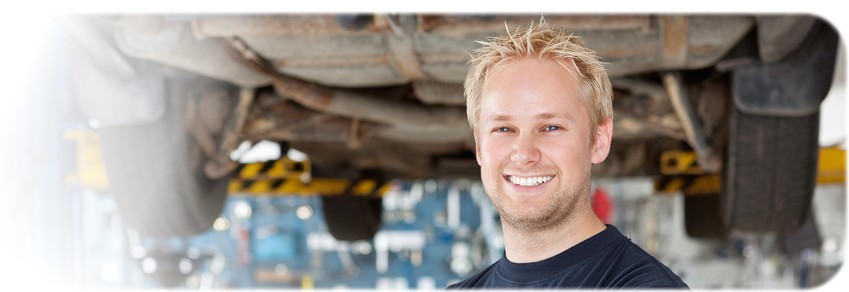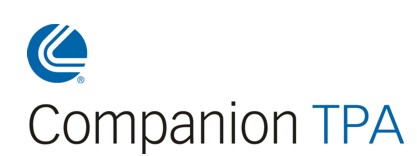


SOUTH CAROLINA AUTOMOBILE DEALERS ASSOCIATION
SCADA



SOUTH CAROLINA AUTOMOBILE DEALERS ASSOCIATION
SCADA

SOUTH CAROLINA AUTOMOBILE DEALERS ASSOCIATION
SCADA

SOUTH CAROLINA AUTOMOBILE DEALERS ASSOCIATION
SCADA



You may wonder if spending more money will reduce your risk of loss, or if spending less money will lead to increased injuries or long-term insurance problems. The most important question to ask, however, is if your investment in safety is giving you the outcomes you need. How effectively are you managing your risk?
Assessing Your Risk
How are you managing your risk today? Consider these questions:
- What are you doing now to reduce loss on a daily basis?
- How are you measuring progress?
- How are you addressing accountability?
- Does your safety program contribute to your profits?
- What's working? What isn't?
 | ||||

Building Accountability / Continuous Improvement
When genuine attempts to improve safety have failed, it is often due to a breakdown that is unintentionally created by management itself. In many cases, the problem arises when business actions take priority over safety.
For example, your company needs to meet a large client’s rush order. Management requires staff to work under a time crunch, and justifies shortcuts because everyone is “in a hurry.” As a result of the rush, accidents happen. When analyzing why, companies may fail to acknowledge management's role.
Building accountability into process starts with senior management. Safety needs to be conducted as part of the process of doing the job well. It is part of quality, service and production. It is not something that can be rescheduled. Rather, it is part of the process.
Changing Measures
What does management measure on a daily basis? Production, on-time delivery, length of time to complete a project, quality, etc. are often key measures taken on a daily basis. All are important, but should also include other measures that ensure the job is done safely each day. Consider:
- How is this done now?
- What do you measure?
- What is rewarded?
- How are people recognized in the organization?
- Where is safety in the recognition process?
If safety is not included in your answers, then any other process your company recognizes will naturally take precedence over safety in a pinch. This is regardless of the safety training your company provides. Safety must be a part of how you do business daily.
Make Safety an Integral Part of Your Business
Companion Property and Casualty can help your company's management focus on measuring, motivating and monitoring employee performance in safety. We will help you take practical steps to building accountability and maintaining continuous improvement. Check out our helpful resources.
We Can Help You Manage Risks
You purchase insurance to help manage unexpected loss. You can save your company more time and profits by also helping minimize or eliminate certain risks. We specialize in helping our customers identify key areas to improve processes and increase safety results. Please explore our safety/risk management area of the website for helpful information and tips.
Construction Safety
As a commercial builder, you're facing an ever-tightening, competitive market. To improve profitability, you need to review insurance costs and the factors that impact those costs. Companion Property & Casualty's risk management specialists have the knowledge and experience to support your management team in identifying potential job site hazards.
We can conduct job site surveys for both regulatory compliance and risk minimization. We specialize in commercial roofing, masonry, electrical, utilities and other industrial trades.
Control Your Costs
In competitive markets, controlling your experience modifier helps minimize the cost of workers' compensation insurance and also contributes to your bottom line. An experience modifier is the adjustment of annual premium based on previous loss experience. You can help control costs when managers, superintendents and foremen are educated in tools and programs that can help prevent claims. Together, you work to control the cost of accidents. You also provide modified duty to injured workers while they recover from accidents. When these actions successfully affect your claims experiences, your premiums become more cost effective.
Check out our helpful safety resources and free webinars and presentations.
Drug-Free Workplace
When a worker is impaired by the use of drugs or alcohol, he or she threatens the safety and well-being of everyone in the workplace. The vast majority of people who use illegal drugs are employed. When they arrive for work, they don't leave their problems at the door.
Did you know:
- Of the 17.2 million illicit drug users aged 18 or older in 2005, 12.9 million (74.8 percent) were employed either full or part time.
- Research indicates that between 10 and 20 percent of the nation's workers who die on the job test positive for alcohol or other drugs.
- Industries with the highest rates of drug use are the same as those at a high risk for occupational injuries. This includes construction, mining, manufacturing and wholesale.
Controlling Your Costs
Many states provide a drug-free workplace credit for compliance with state requirements for drug testing. The Companion Property and Casualty risk management and underwriting team will work with your agent to ensure your company receives the maximum allowable state credit. If your state does not offer the credit, you can still benefit from a drug testing program. In many states, the burden of proof is on the employer to prove drugs or alcohol were the proximate cause of an injury. Only a drug test done in a timely fashion can accomplish this.
Check out our helpful resources and free webinars and presentations.
Home Health Care Safety
As the costs of extended hospital stays and nursing homes have risen, the need for home health care has increased. Home health care agencies can deliver their services in a cost-effective way, but the industry has unique challenges in providing a safe working environment. The Companion Property and Casualty risk management specialists have extensive knowledge and understanding of the challenges of the home health care industry.
Employees who work independently in the field need concise company programs and policies to guide them in their daily routines. Identifying programs to address the unique situations employees face related to accident avoidance and reporting can be a challenge. Providing employees with resources can help control claims. These can include:
- Lists of medical care providers in their areas
- Supplemental information to the care plan to avoid accidents at a patient’s home
- Instructions on what to do if an employee is injured
Controlling Your Insurance Costs
Controlling your insurance costs starts before an accident happens. We can provide you with information about:
- Developing best management practices in hiring the right employees
- Developing policies and programs to address worker behavior out in the field
- Identifying the physical demands of the job position
- Identifying potential risks care providers face
- Managing claims
Check out our helpful safety resources and free webinars and presentations.
Safety Resources
Here we've provided a variety of resources to help you improve your safety and risk management. You'll find sample policies, return-to-work tips and much more.
Drug-Free Workplace
Occupational Safety and Health Administration (OSHA)
Return-to-Work (RTW)
Safety
Shift Work Information
Return to Work
If your company has a workers’ compensation claim, the use of a return-to-work program (RTW) will help control costs while benefiting the injured worker. RTW is a method to bring an injured worker back to the workforce as soon as it's medically safe.
Physicians often release injured employees with physical restrictions as their conditions improve. In these cases, use of an RTW program can dramatically reduce the duration of disability by easing the worker back to productivity in a safe manner.
Controlling Your Costs
When faced with employee injuries, some companies may feel it's too late to control the cost. The reality is that you can manage the cost of a claim much more effectively while using RTW. It helps improve communication, provides reassurance to the employee and ultimately helps by limiting disability duration.
Several states offer a 70 percent reduction for medical-only claims when calculating your experience modifier. The experience modifier is the adjustment of annual premium based on previous loss experience. When you implement an RTW program, many of the claims remain medical only. This can dramatically impact the experience modifier. This will help make your premiums more cost-effective.
If you have questions about using RTW with an injured worker, please ask your adjuster. You can also check out our helpful resources and free webinars and presentations.
Safety Training
Training employees is an important step toward risk improvement. It is also often necessary for compliance with certain regulatory agencies.
There are several resources on the Internet that can help you meet your training program goals. The options range from free materials and Web-based training options to traditional classroom training materials. We have listed several that are reputable and cost effective in "Resources" section (Safety and Regulatory Agency).









SOUTH CAROLINA AUTOMOBILE DEALERS ASSOCIATION
SCADA

SOUTH CAROLINA AUTOMOBILE DEALERS ASSOCIATION
SCADA

SOUTH CAROLINA AUTOMOBILE DEALERS ASSOCIATION
SCADA

SOUTH CAROLINA AUTOMOBILE DEALERS ASSOCIATION
SCADA
Workers' Compensation website
........................................................................................................................................................................................................................................................
Ensuring a safe environment is a critical part of business operation. When it comes time to invest in the safety program, it's also important to place safety in the context of today’s business environment. Effective management of risk is Companion TPA's focus.


Companion TPA
P.O. Box 100159, Columbia, South Carolina 29202
© Copyright 2014 All rights reserved